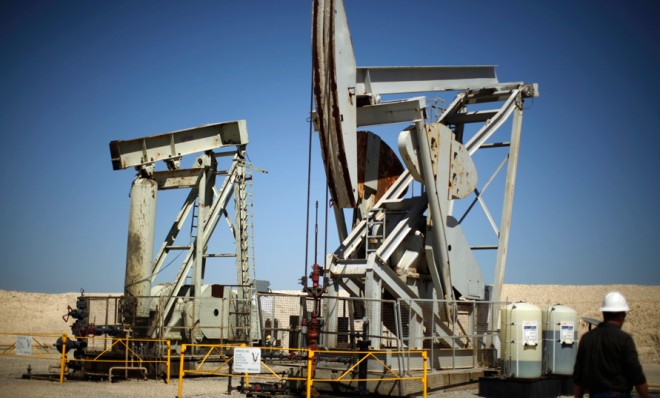How the U.S. shale boom is dragging down Russia
The U.S. is fracking its way to the top

A free daily email with the biggest news stories of the day – and the best features from TheWeek.com
You are now subscribed
Your newsletter sign-up was successful
The U.S. is about to dethrone Russia as the world's largest producer of oil and natural gas — a change that will further shake up the power dynamics in the global energy market.
In recent years, U.S. energy production has surged, as fracking technologies have allowed energy producers to tap the potential of shale rock — geological formations rich in oil and natural gas. As of July, the U.S. was producing 22 million barrels of oil and natural gas each day, says The Wall Street Journal's Russell Gold and Daniel Gilbert.
While the fracking boom has helped put the U.S. on the track toward energy independence — the U.S. is importing 32 percent less natural gas and 15 percent less crude oil in the past five years — it's been a problem for other energy-rich nations, especially Russia, the biggest energy producer in the world. "The dramatic changes in the global gas market have plunged Russia into a recession," says Free Beacon's Daniel Wiser.
The Week
Escape your echo chamber. Get the facts behind the news, plus analysis from multiple perspectives.

Sign up for The Week's Free Newsletters
From our morning news briefing to a weekly Good News Newsletter, get the best of The Week delivered directly to your inbox.
From our morning news briefing to a weekly Good News Newsletter, get the best of The Week delivered directly to your inbox.
For years, Russia's state-run energy giant Gazprom has powered the country's economic growth, pumping huge amounts of energy to Europe and China. "Hydrocarbons have accounted for half of Russia's GDP growth since 2000," says Wiser.
But in 2012, the U.S. overtook Russia in natural gas production for the first time since 1982, says Gold and Gilbert. And at the same time, Russia has been slow to get with the fracking program. The result is that Gazprom's global dominance has started to dwindle. Gazprom's exports to Europe dropped eight percent in 2012 — and is now at the lowest level in 10 years.
And as the U.S. hit that 22 million barrels a day mark in July, Moscow's forecast for oil and gas production hit 21.8 million barrels a day.
The shift is "reshaping markets and eroding the clout of traditional energy-rich nations," says the Journal. Global gas prices are sliding, Europe suddenly has more options for where to buy gas from, and the U.S. no longer looks like a target for Gazprom's exports.
A free daily email with the biggest news stories of the day – and the best features from TheWeek.com
"[T]he surge in U.S. natural gas production has undercut Russian gas exports to Europe and prompted executives to scuttle their plan for shipping liquefied natural gas (LNG) to America," a Russian energy expert told Wiser. Russia is having a hard time keeping up:
Additionally, Russia's longtime reliance on traditional natural gas production methods involving dry storage, steel pipeline transport, and long-term contracts linked to gas prices will hamper its attempt to transition to cutting-edge markets such as East Asia, he said during a lecture at Johns Hopkins University's School of Advanced International Studies. [Free Beacon]
But the power shift toward U.S. dominance may not last forever, says Gold and Gilbert. Especially as fracking becomes more controversial:
Even optimists in the U.S. concede that the shale boom's longevity could hinge on commodity prices, government regulations and public support, the last of which could be problematic. A poll last month by the Pew Research Center for the People and the Press found that opposition to increased use of fracking rose to 49 percent from 38 percent in the previous six months. [The Wall Street Journal]
Carmel Lobello is the business editor at TheWeek.com. Previously, she was an editor at DeathandTaxesMag.com.
-
 How the FCC’s ‘equal time’ rule works
How the FCC’s ‘equal time’ rule worksIn the Spotlight The law is at the heart of the Colbert-CBS conflict
-
 What is the endgame in the DHS shutdown?
What is the endgame in the DHS shutdown?Today’s Big Question Democrats want to rein in ICE’s immigration crackdown
-
 ‘Poor time management isn’t just an inconvenience’
‘Poor time management isn’t just an inconvenience’Instant Opinion Opinion, comment and editorials of the day